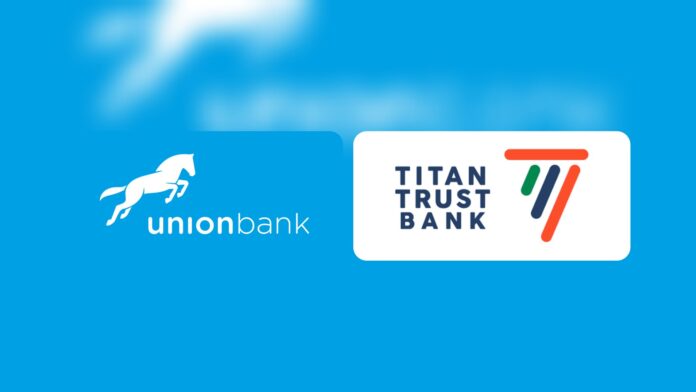Union Bank of Nigeria has completed its long-running merger with Titan Trust Bank. The transaction closed after the Central Bank of Nigeria gave final approval today.
The deal began when Titan Trust signed a Share Sale Agreement in December 2021. Over time, Titan Trust bought the majority stake and moved to take full control. “Titan Trust has acquired a controlling interest in Union Bank,” the firms said in earlier notices.
Customers are reassured that everyday banking will not break. “Your existing account number(s) remain the same,” the bank stated. The integration timetable shows Titan Trust branches will be recognised as Union Bank branches from today, September 1, 2025.
A long heritage meets fresh ambition
Union Bank traces its roots to 1917. The merged bank now pairs that heritage with Titan Trust’s recent drive for growth.
Union Bank’s footprint now widens to more than 293 service centres and over 937 ATMs nationwide. That scale aims to support retail, SME and corporate customers across Nigeria.

“This is a pivotal moment in our 108-year journey, and a launchpad for delivering greater value to our customers,” said Managing Director Yetunde Oni.
Global and local law firms advised the transaction. Norton Rose Fulbright confirmed it advised Titan Trust and the deal team on legal and financing matters. The sale involved the divestment of roughly 93.4% of Union Bank’s issued shares by previous controlling shareholders.
What customers and stakeholders should know
Under the terms of the merger, Union Bank is the surviving brand. Titan Trust as a separate legal brand will cease to exist. The bank says account numbers, cards, and online access remain valid. “You do not need to open a new account,” the integration FAQs state.
The bank plans a faster push into digital services. That includes upgrades to mobile apps and streamlined access for small businesses. The combined resources are expected to unlock cost synergies and increase lending capacity for SMEs.

Shareholders saw major movement two years ago when Titan completed its initial buyout. That transaction paved the way for delisting from the Nigerian Exchange and the present consolidation.
“Bringing together the strengths of both institutions allows us to create lasting value,” said Chairman Bayo Adeleke.
The merged bank will focus on deeper financial inclusion. Analysts say the institution could become more competitive in consumer lending, payments, and digital banking.
Regulators will continue to monitor integration risks, staff transitions, and systems security.
Are you moving over to the new Union Bank? Do you expect service improvements in your local branch after this merger? Will more consolidation make Nigerian banking safer or less competitive? Share your view in the comments.
Rate, Like 👍, Comment💬, share this article and Follow us on our social media handles. You can also Submit your own story to get featured and earn rewards!







